The
Augmented Developer
Shifting the mindset, upgrading the toolset..
Becoming more human and less machine.

Less Iron, More Man
Shadi Sharaf
Senior Engineer
WordCamp Lisbon
2025
- 👷🏻♂️Senior Engineer, 20+ years in Web dev, 15 in WP
- 🗣️ Speak about Standards, Debugging, Performance, Testing, AI
- ✈️ Travel junkie
- 🍝 Foodie 🍣🍤🥗
- 🧑🏻💻 Agencies: XWP, Human Made, The Times.
- 📦 Projects: WP Coding Standards, Stream plugin, and others.
- 🤝 Clients: Enterprise publishers, Universities, Banks, Tech
Who am I?







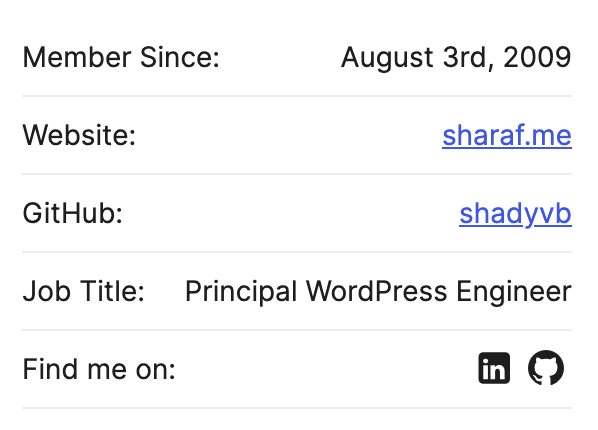

https://slides.com/shadisharaf
- AI (R)Evolution, and Why it matters
- Jargon Demystified: Buzzwords Explained
- AI Workspace: Editors & Assistants
- Mastering the Conversation: PETs
- Rules and Tools: Advanced Customisation
- The Road Ahead: What's Next
- Q&A
Agenda
AI (R)Evolution
When, What, Why, and Why!
1950
"Can machines think?"
Alan Turin
80's
Rise of
Expert Systems
Medical applications, etc
Deep Learning
Evolution
Systems learning to learn!
2010's
Machine Learning Renaissance
Systems learn from data!
90's
ML
Generative AI
Revolution
Systems learn to dream!
2020's
GenAI/LLMs
AI
The Dartmouth Workshop
The birth of AI as a field
1956
?
General Intelligence
(AGI)
System running systems!
AGI


ai-2027.com
AI SCI-FI (or is it?)
What does that mean for us, Engineers?
-
86% of businesses expect AI and technology to transform their operations by 2030.
-
AI and technology are expected to displace 9 million jobs
-
.. and create 11 million others
-
.. resulting in a net increase of 2 million jobs directly related to these technologies.
-
39% of existing worker skills are expected to change or become outdated by 2030.
-
"Software and Applications Developers" remain among the fastest-growing jobs in absolute numbers.
-
So? Good news?
– World Economic Forum
Job Report 2025 *
* https://www.weforum.org/publications/the-future-of-jobs-report-2025/in-full/2-jobs-outlook/#2-1-total-job-growth-and-loss
Change is the only CONST in life
– Heraclitus
Shifting Mindset
Shift
Outdated
- I'm good at my job!
- I'm a Senior engineer!
- My company is stable!
- I have the context!
- I'll wait and see!
- It's a hype! It'll go away!
- AI writes s**t code!
- AI can't code on its own!
- Document better!
- Communicate clearer!
- Iterate quicker!
- Experiment more!
- Prioritise learning!
- Leverage automation!
- Embrace Testing!
- Architect, delegate,
- BE THE BOSS!
Shift
Outdated
- I'm good at my job!
- I'm a Senior engineer!
- My company is stable!
- I have the context!
- I'll wait and see!
- It's a hype! It'll go away!
- AI writes s**t code!
- AI can't code on its own!
LLMs, Agents, MCPs, PETs, Rules, Tools,
OH MY!
Jargons demystified!
Pre-trained autocomplete algorithm trained on massive amount of data and code, that predicts next most likely word or code in a sequence based on context and its training data.
LLMs: Large Language Models
Systems that augment LLMs with tools ( files, service APIs, system tools, etc), and context ( code, docs, data ), empowering it to make decisions and execute actions (editing files, running commands, calling APIs) to achieve a certain outcome.
Agents: LLMs with tools
Tiny applications that extend the functionality of an agent, or enable it to access another system through APIs or system tools, to get data or execute actions.
MCP servers:
Model Context Protocol
Different techniques to form AI prompts to enhance AI context awareness, influence its generation process, and control its output.
PETs: Prompt Engineering
Just like any engineering team, LLMs can be taught to do things the way your team or product does it, think standards and conventions and documentation for your project and technologies.
Rules: Teaching AI your ways
Tokens are a single word or character the model uses to understand input or generate output. Different models uses different tokenisation algorithms. Typical cost unit.
Tokens: LLM Currency
The amount of data a model can keep in memory while it considers the input and generates the output.
Models typically have ways to prioritise context data for long conversations, which means it can _forget_ data as the conversation goes longer.
Context Length: Attention span
The creativity (randomness) threshold allowed for the model to choose between different possible word combinations, the colder the more deterministic and repetitive the output is, the hotter the more creative and random the output is.
Typically between 0 and 2,
Temperature: Probability control
AI Workspace
Editors, Services, Platforms
Touch points
Web platforms
Mobile/Desktop clients
Terminals
Browser extensions
1
Chat interface
Editor extensions
AI IDEs
2
Editors
Low/No-code platform
3
Services / Tools
Chat interface
Web/Mobile:
- OpenAI's ChatGPT
- Anthropic's Claude
- Google Gemini
- DeepSeek
- Perplexity
CLI client
- Aider
- Continue
- Claude Code
- Codex
Terminals
- Warp / iTerm


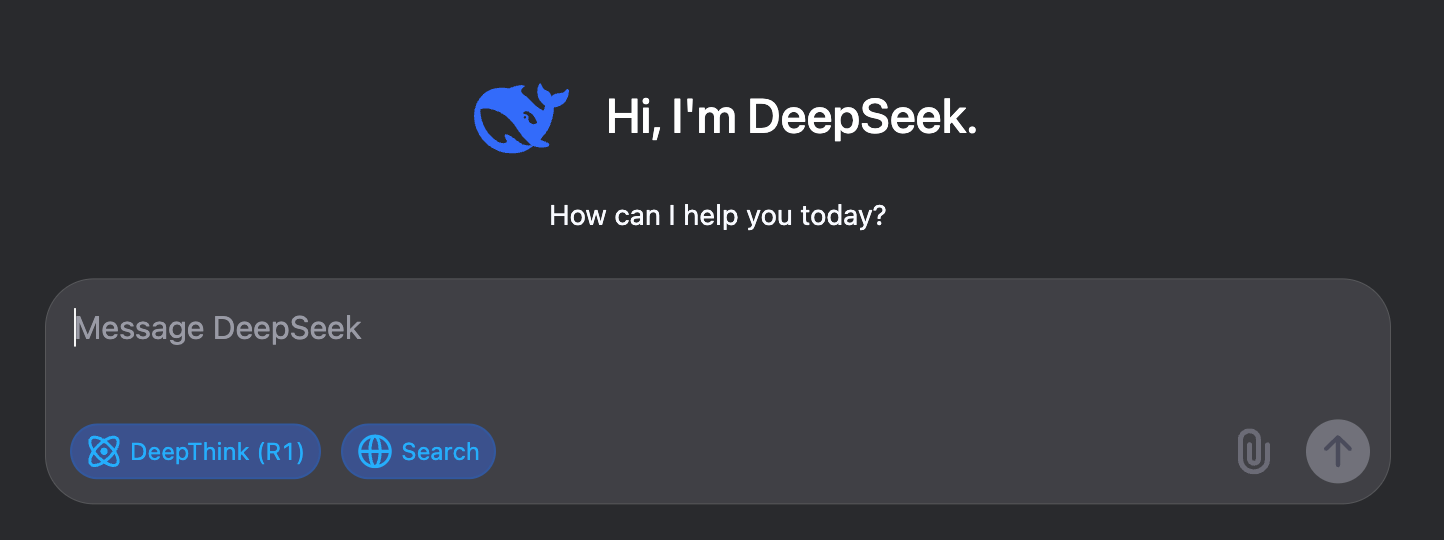
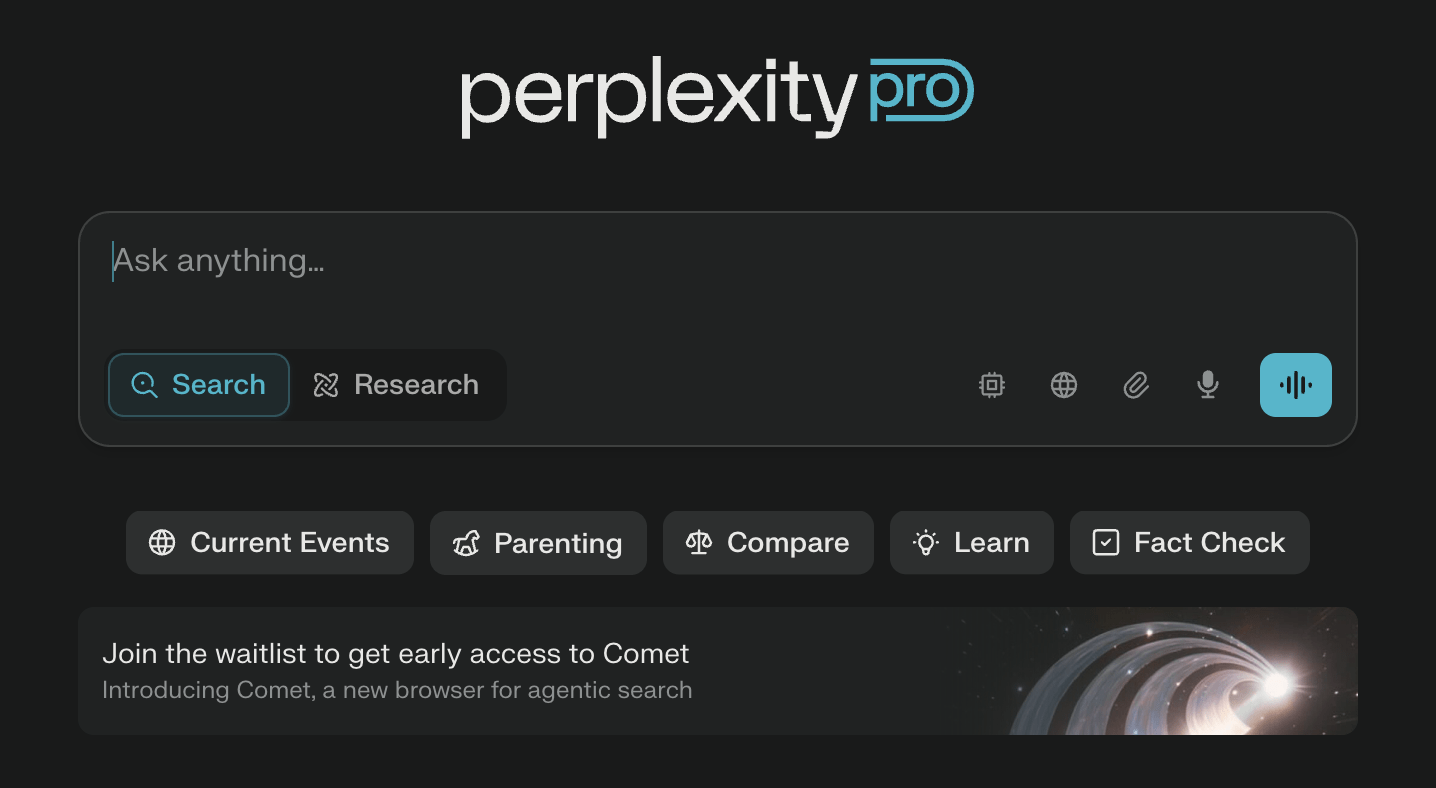
Editors
VSCode extensions:
- GitHub CoPilot
- Cline
- Continue
- Amazon Q
- Microsoft's Intellicode
Editor forks
- Cursor
- Windsurf (Codeium)
- Trae (ByteDance)








Services / Tools
UX AI
- Figma
- UXPilot
- Galileo
Prototyping AI
- Vercel's V0
- Bolt (OS)
- Lovable
- Replit
AI mates
- Devin
- Wingman

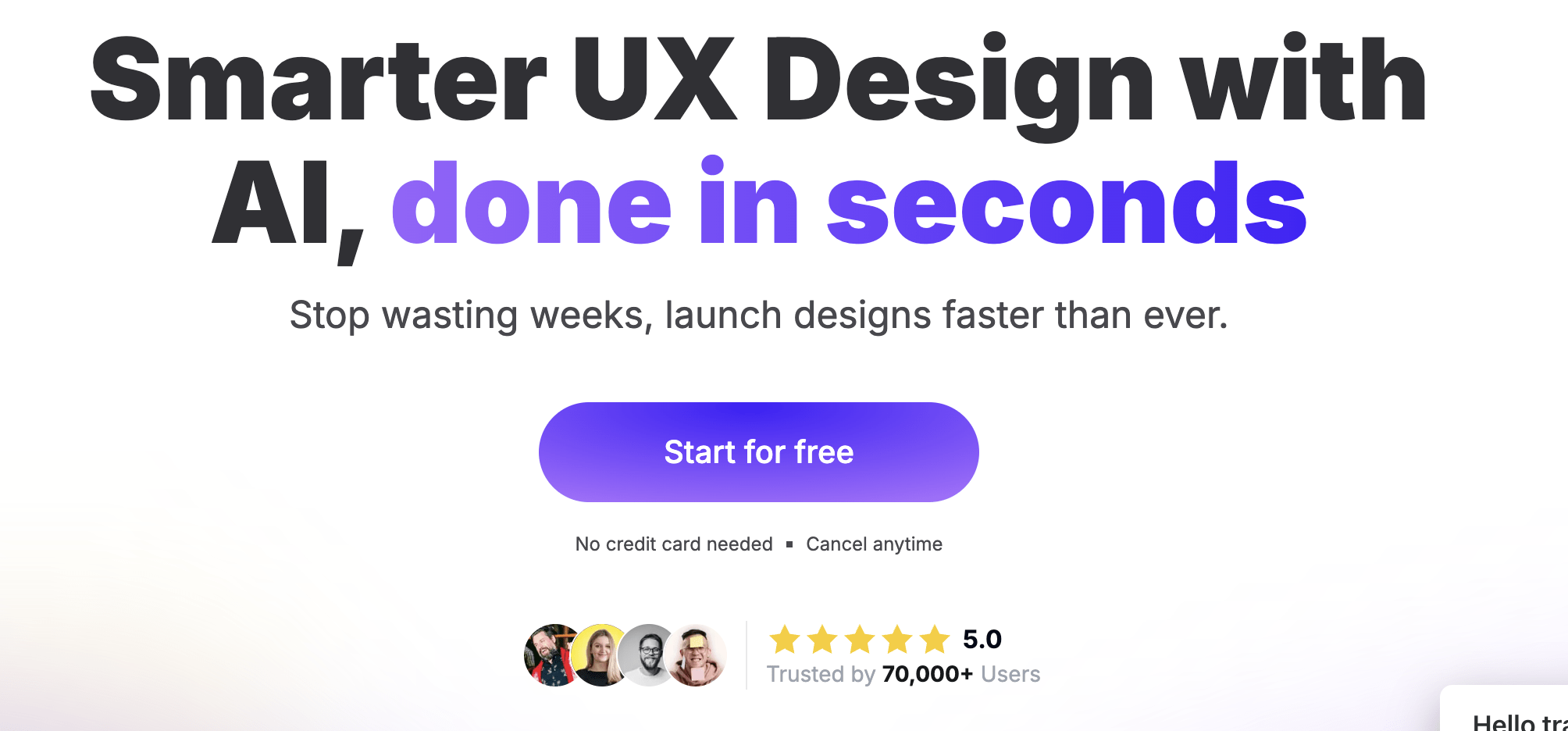

Tools / MCP Servers
Giving LLMs powers.
MCP
Model Context Protocol

What are examples of MCP servers I can use? 🤔
- Search
- Perplexity
- Brave Search
MCP Examples
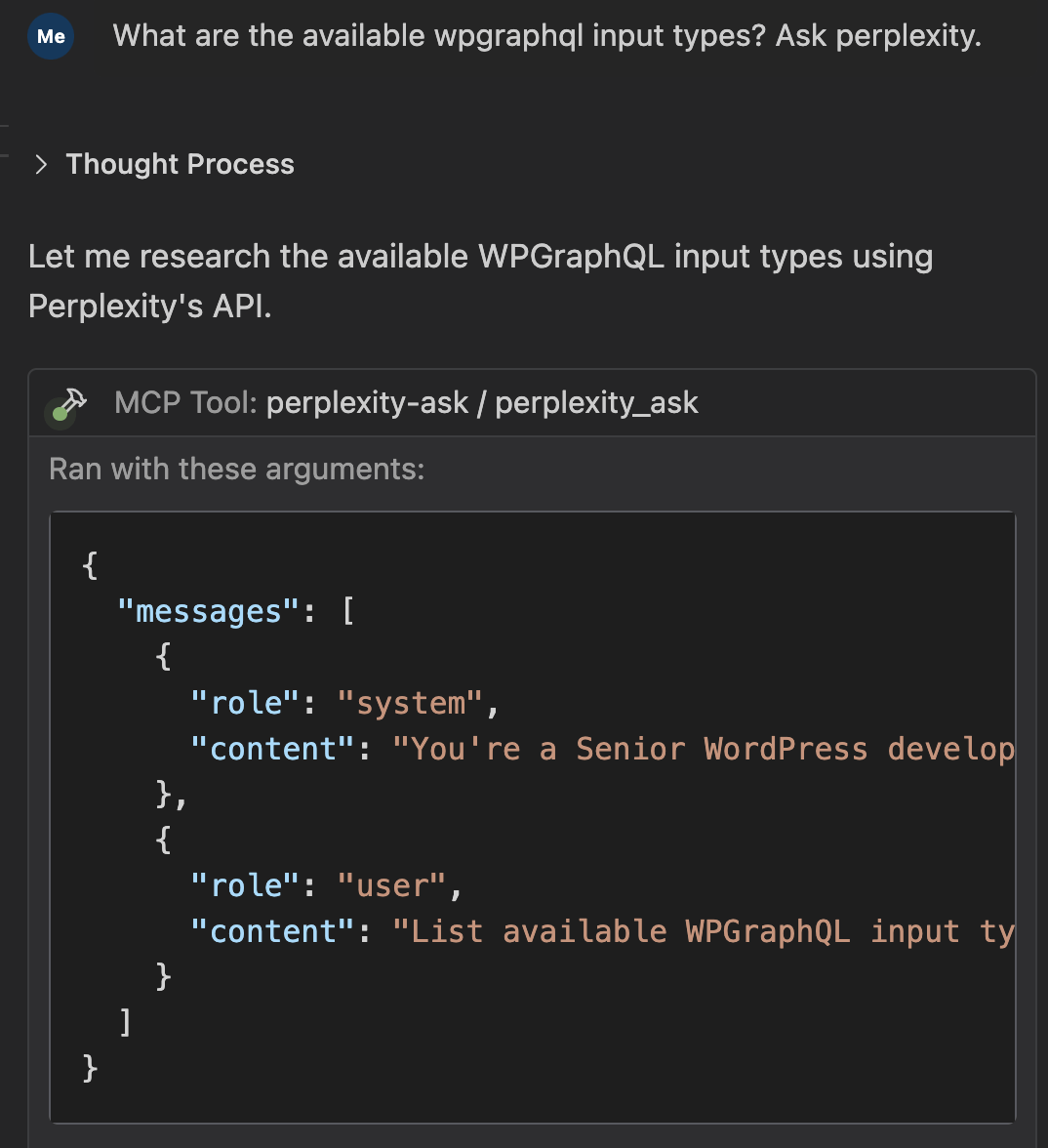
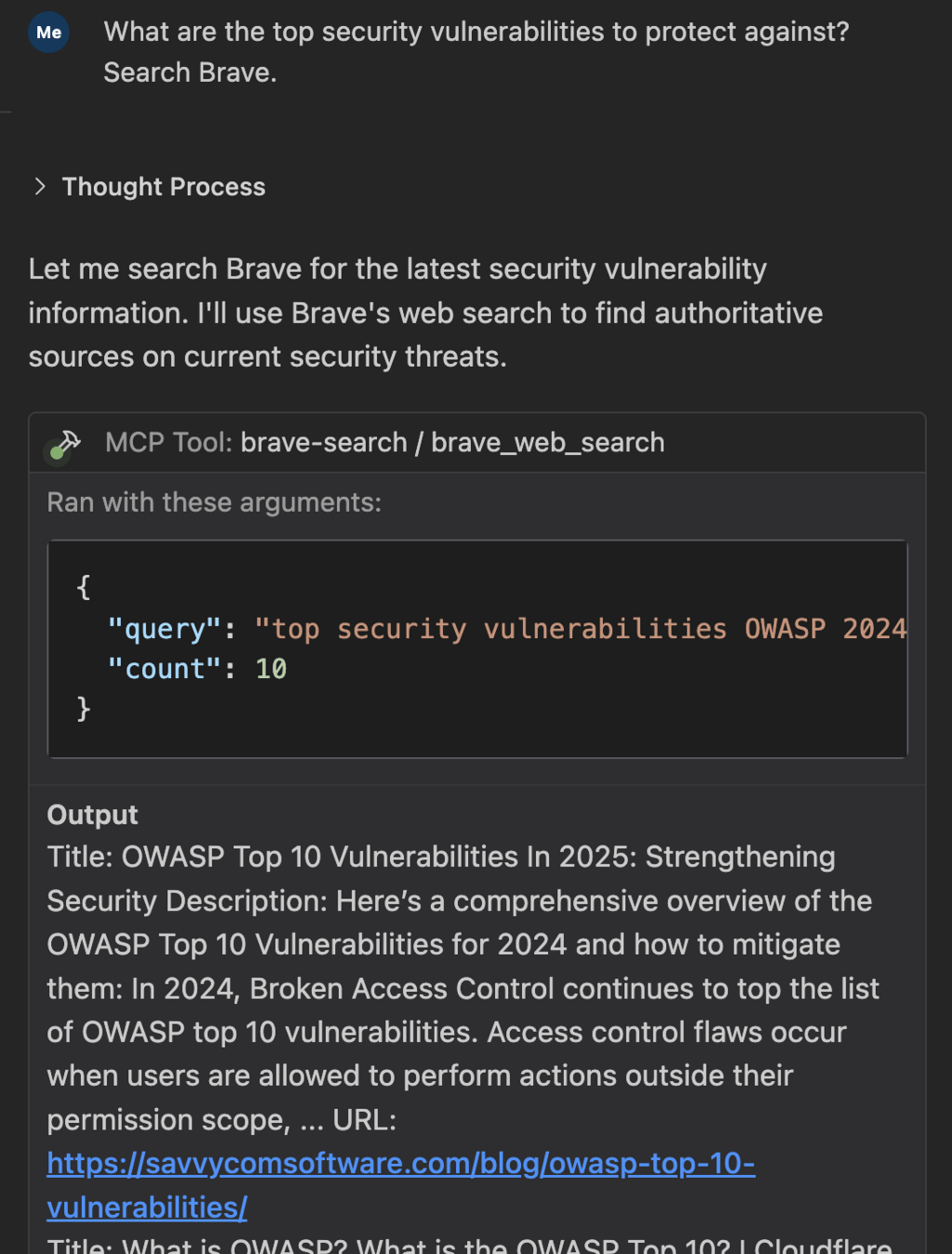
- Services
- JIRA
- GitHub
- Figma
- ...
MCP Examples
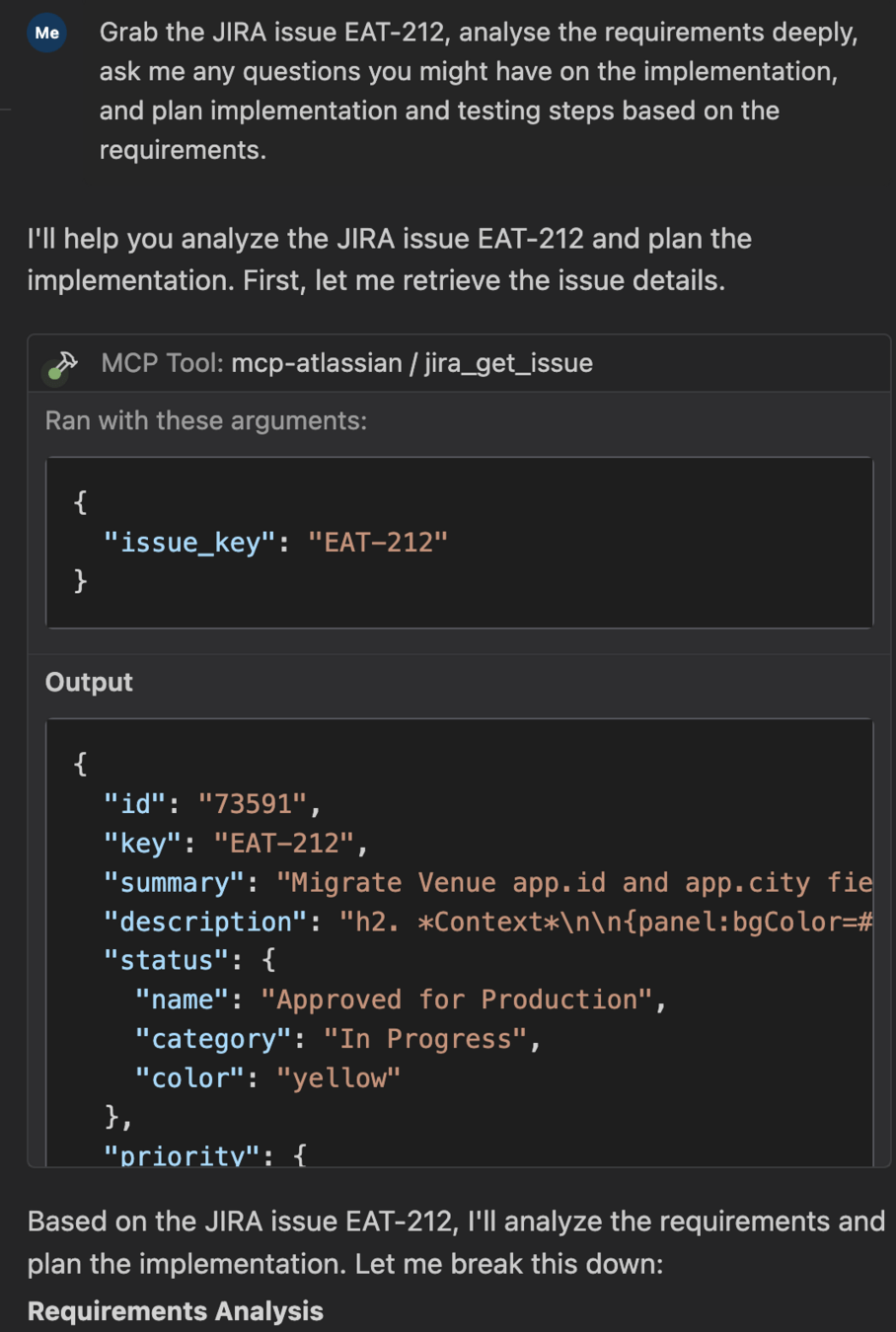
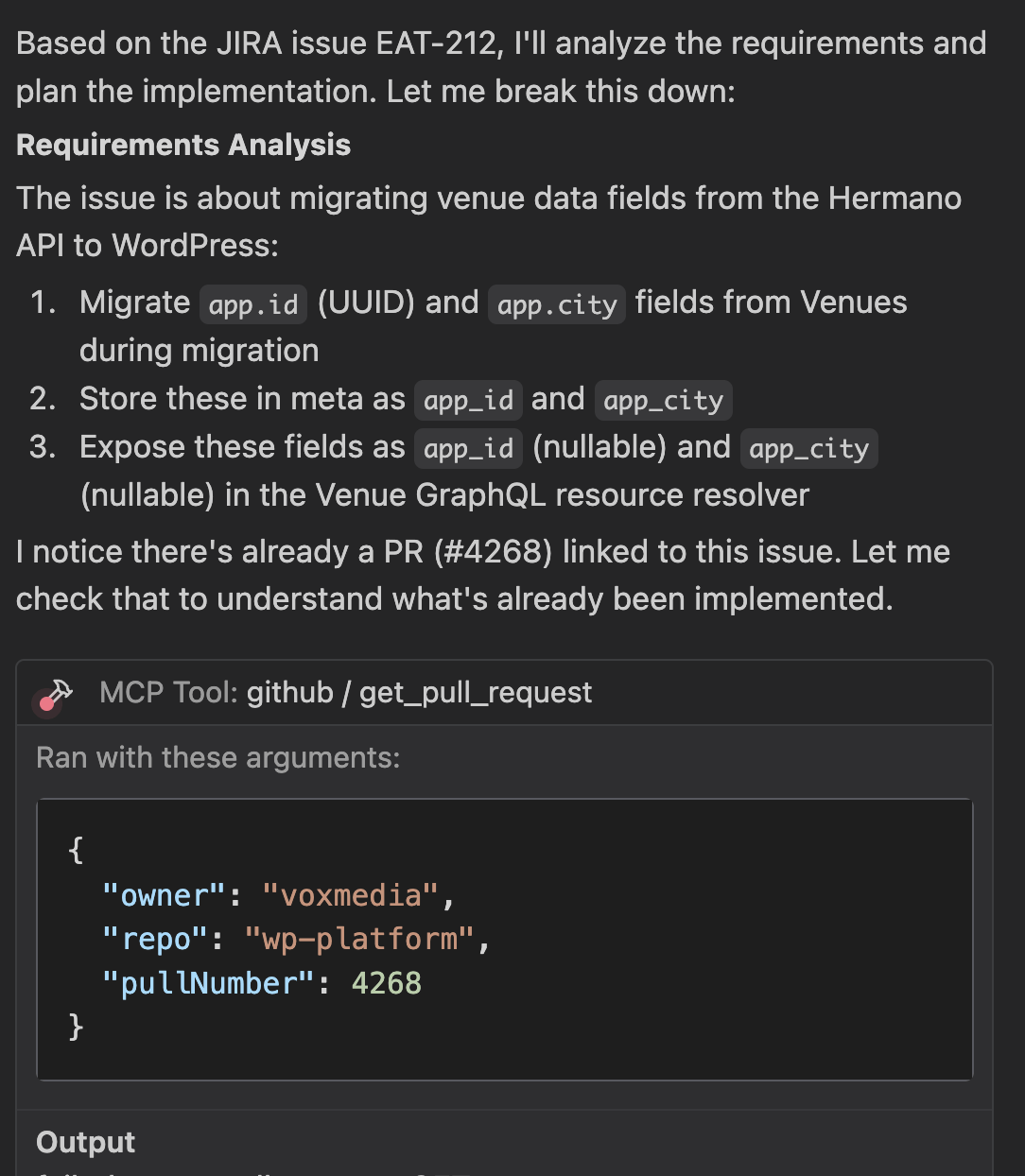
- Servers
- GraphQL
- MySQL
- ElasticSearch
- Automation/Testing/Debugging
- Playwright
- Puppeteer
- Browser dev tools!
MCP Examples
How to discover more MCPs? 😳
- Glama's MCP Directory
- Trae's MCP.so
- Cursor's MCP directory
- Pulse's MCP
- Google!
MCP Directories
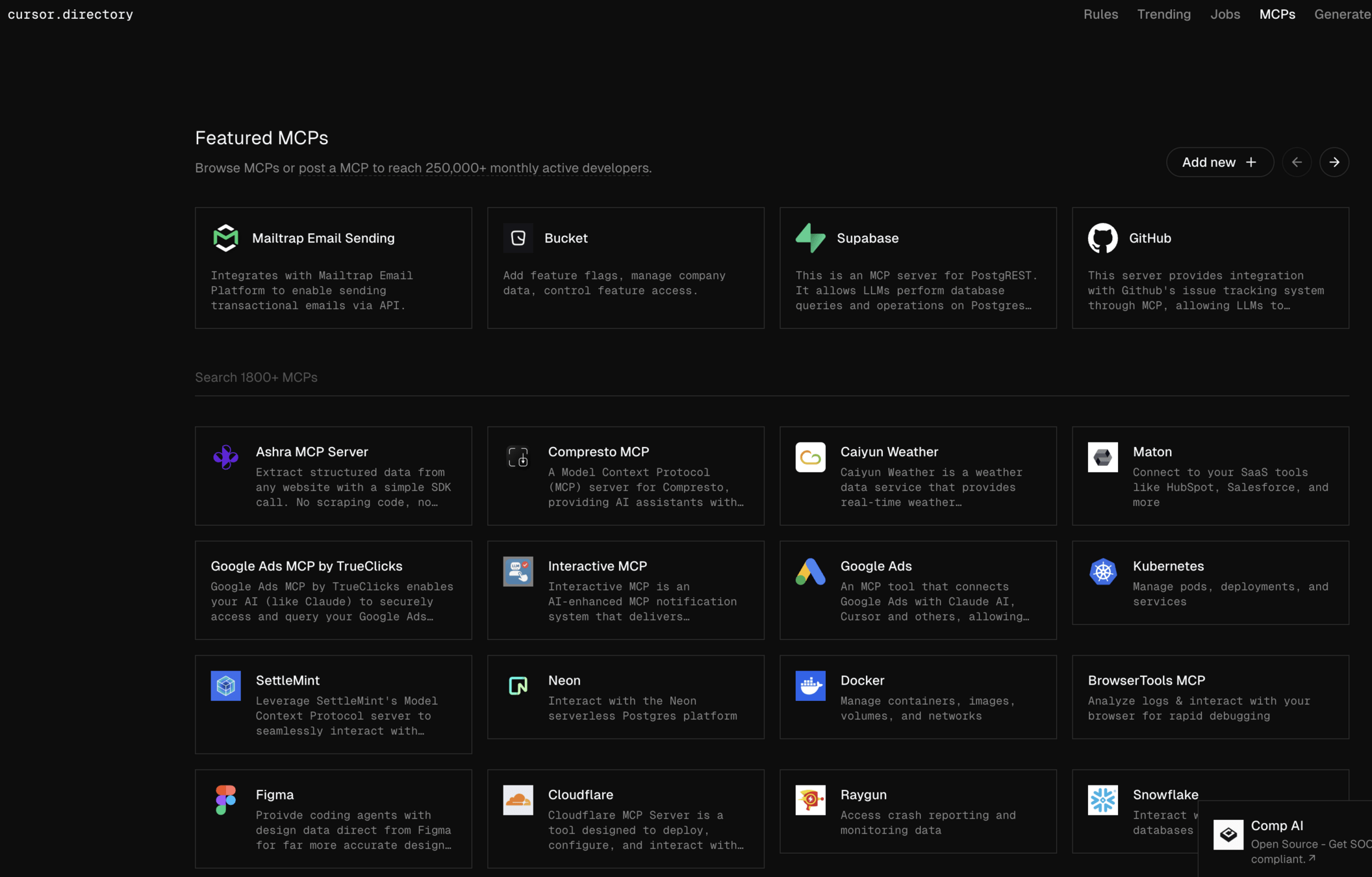
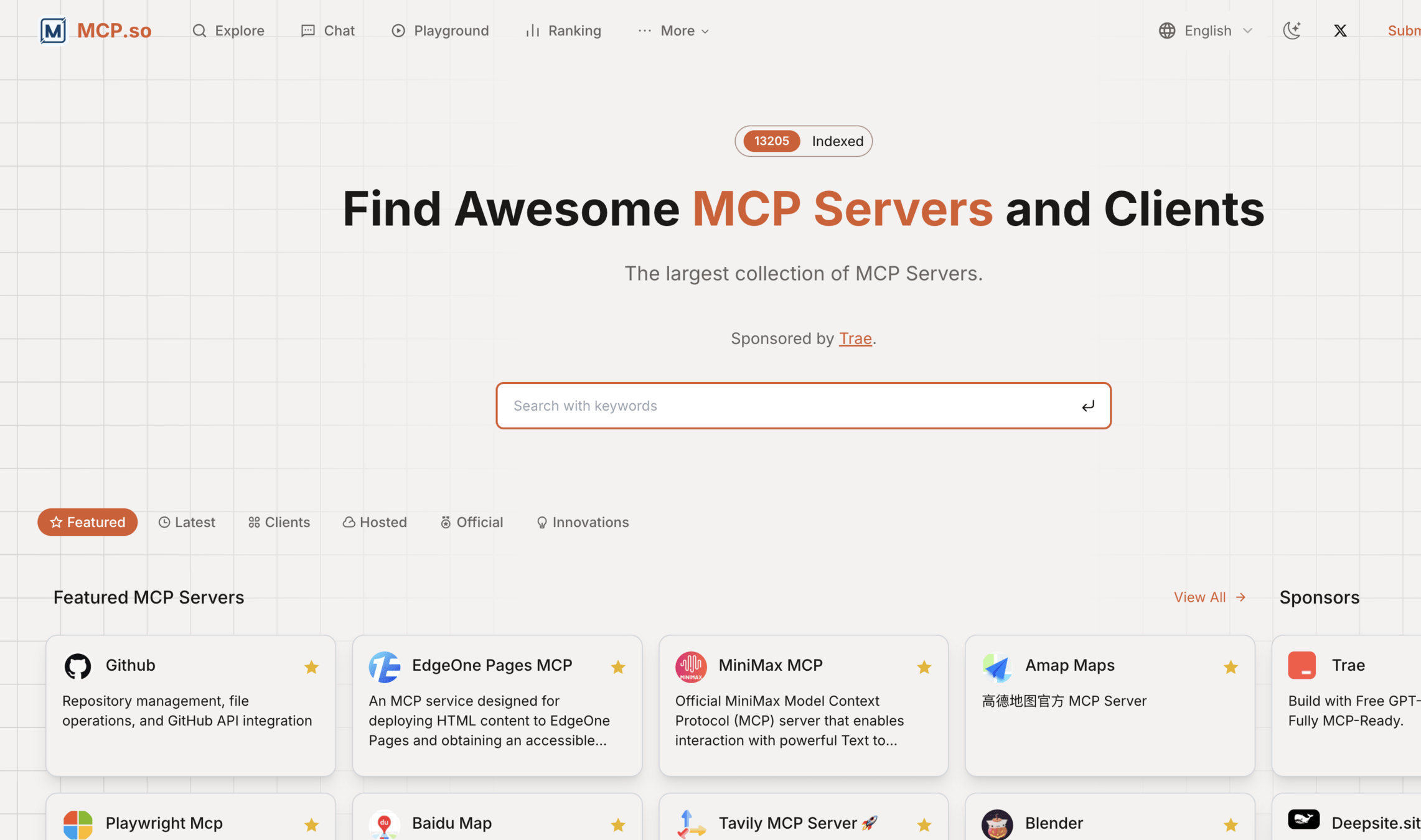
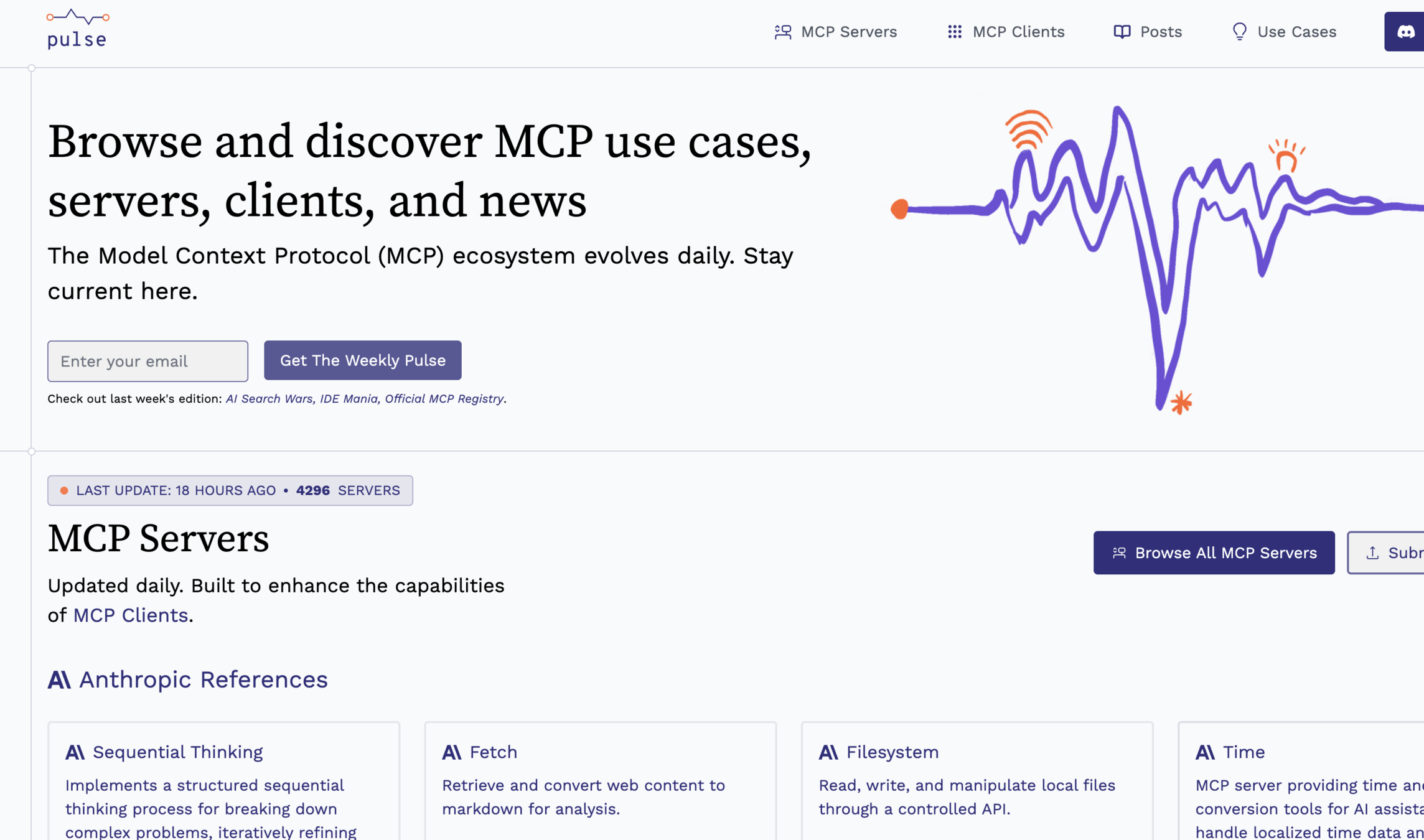
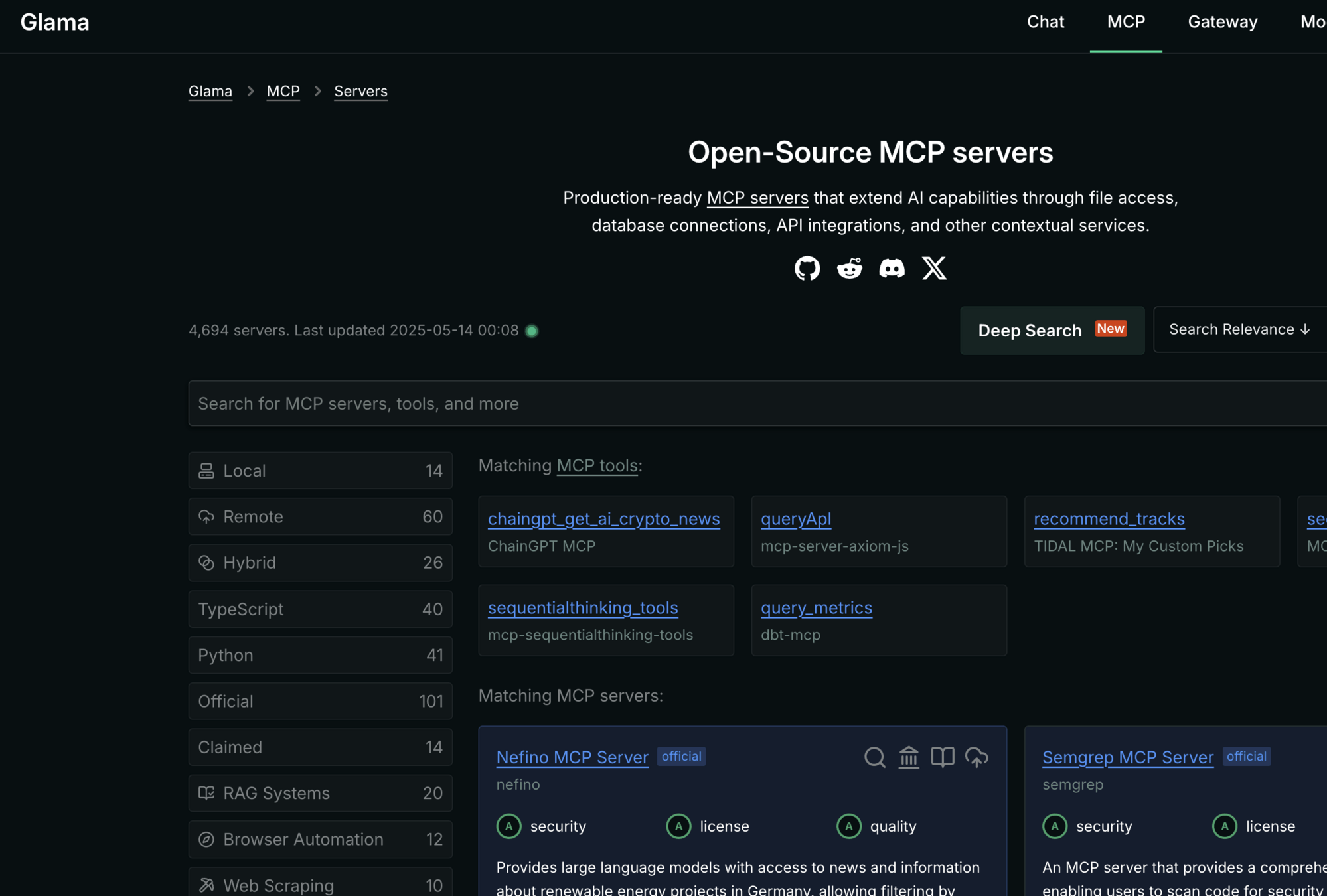

- Your editor!
MCP Directories
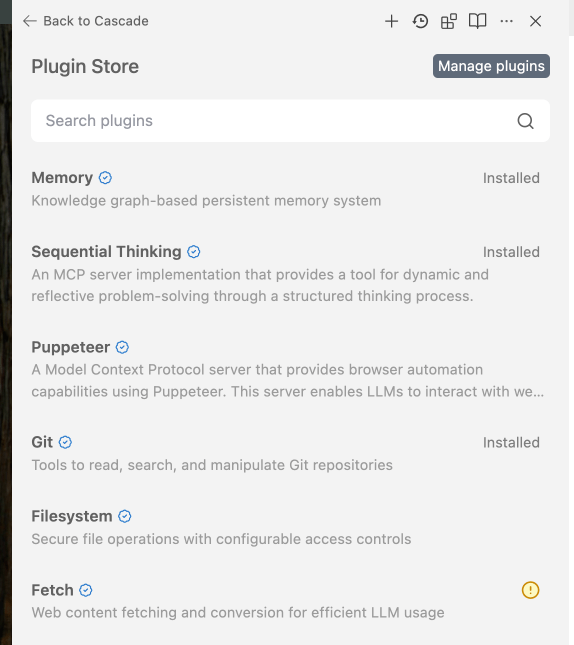
Can I write my own MCP? 🤔
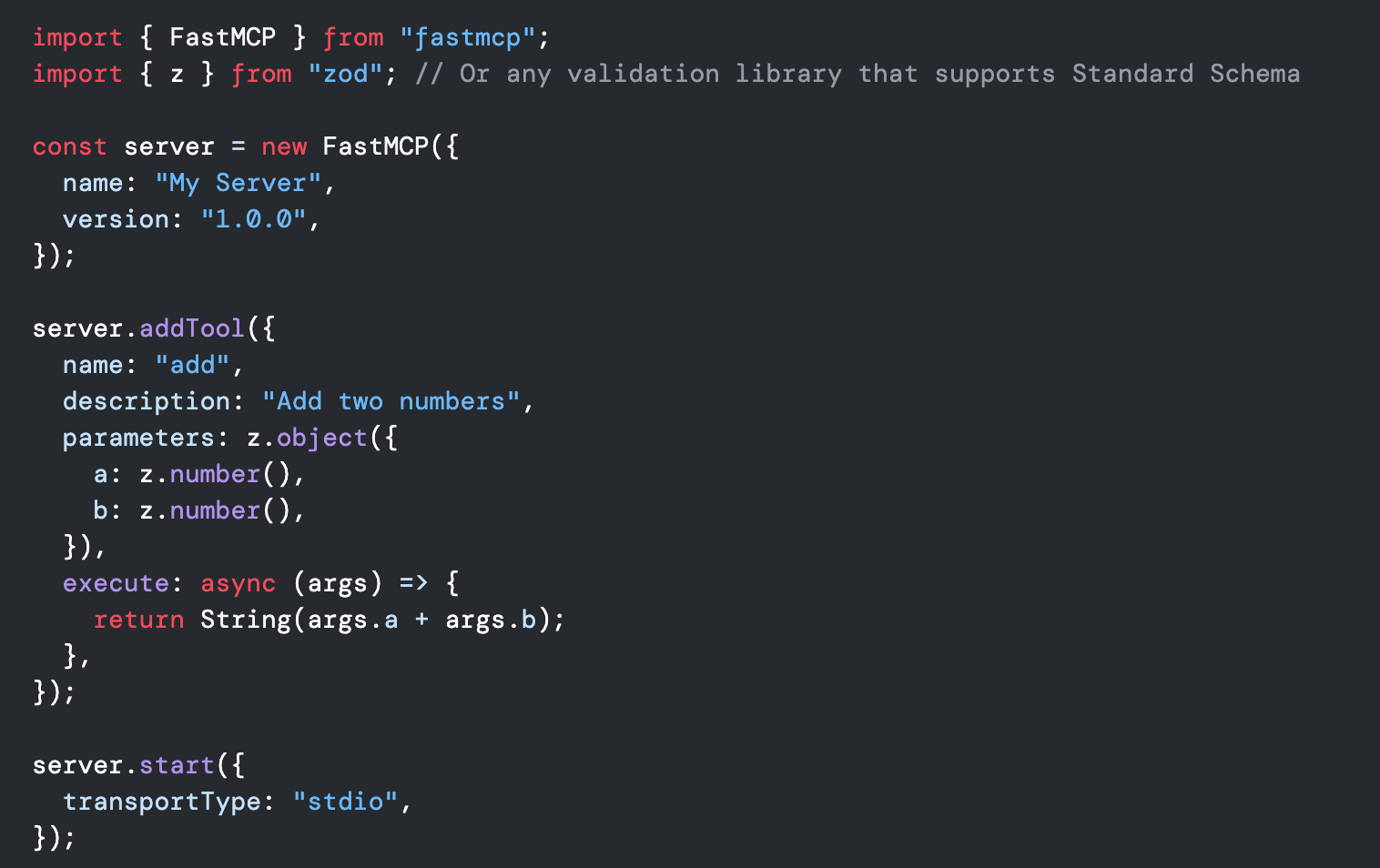
Rules
Whipping LLMs into obedience.
- Global rules
- Project rules
- Glob rules
- Custom rules
Rules: How?
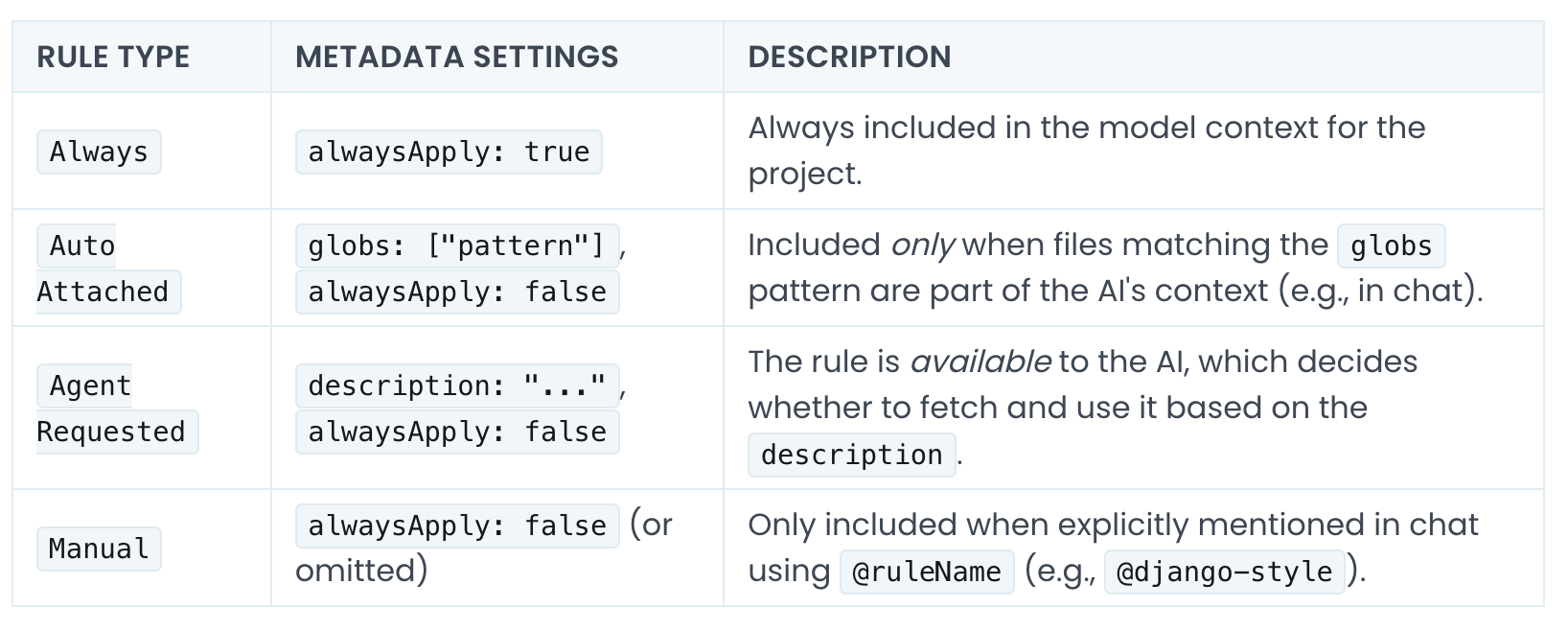
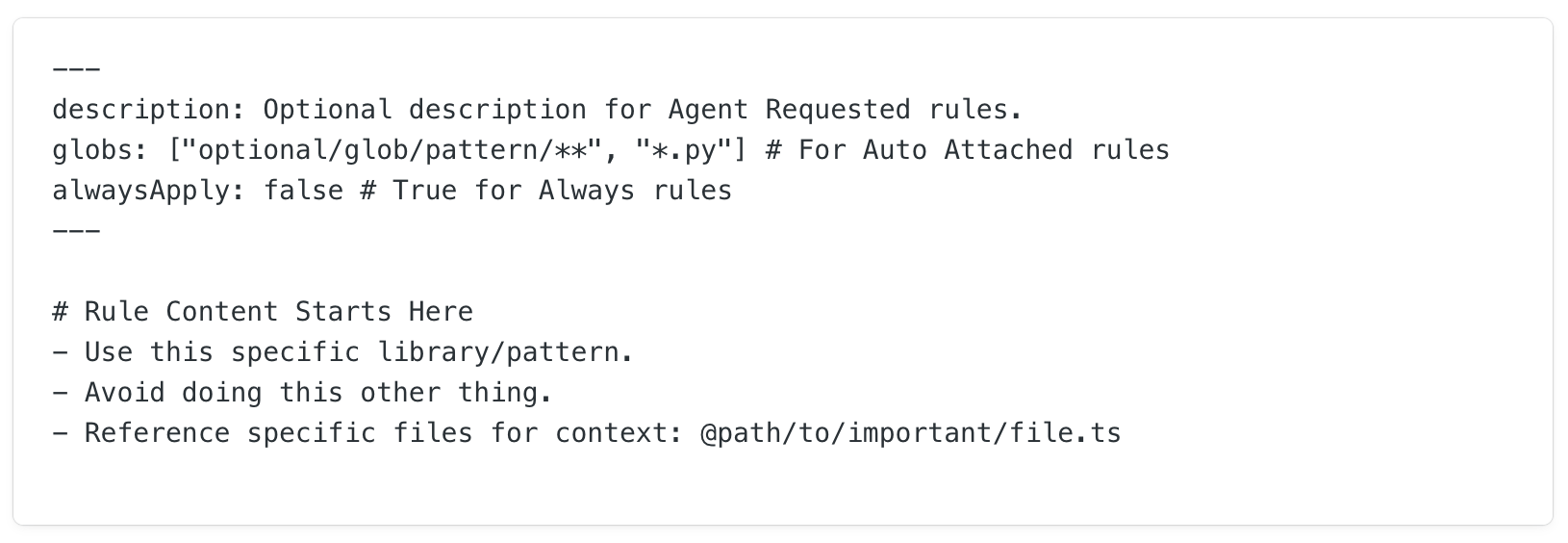
- File structures and Naming conventions
- Requirements (Security, Performance, Accessibility)
- Framework-specific rules (WordPress, React, etc)
- Design patterns
- Testing approaches
- Documentation style
- ..
- Reasoning methodology
- Prompt Engineering Techniques
Rules: Why?
Hey Gemini, read our engineering guidelines at xx, create MDC rules for the project, concise, simple, and comprehensive, in this format: xx.
How can I write my own rules? 🤔
Directories
- cursor.directory
- google: awesome cursor rules! 😳
Generators
- cursor.directory
- 10xrules.ai
- cursorpractice.com
Rules: Examples and generators
- Split: Use different rule files for different technologies/frameworks
- Concise: Be concise about rules to avoid excessive context hijacking
- Examples: Link to example implementations where possible
- Project context: Provide basic project context and functionality
- Rinse and repeat: Try different rules, stick with what works
Tips
DRY for prompts!
Workflows
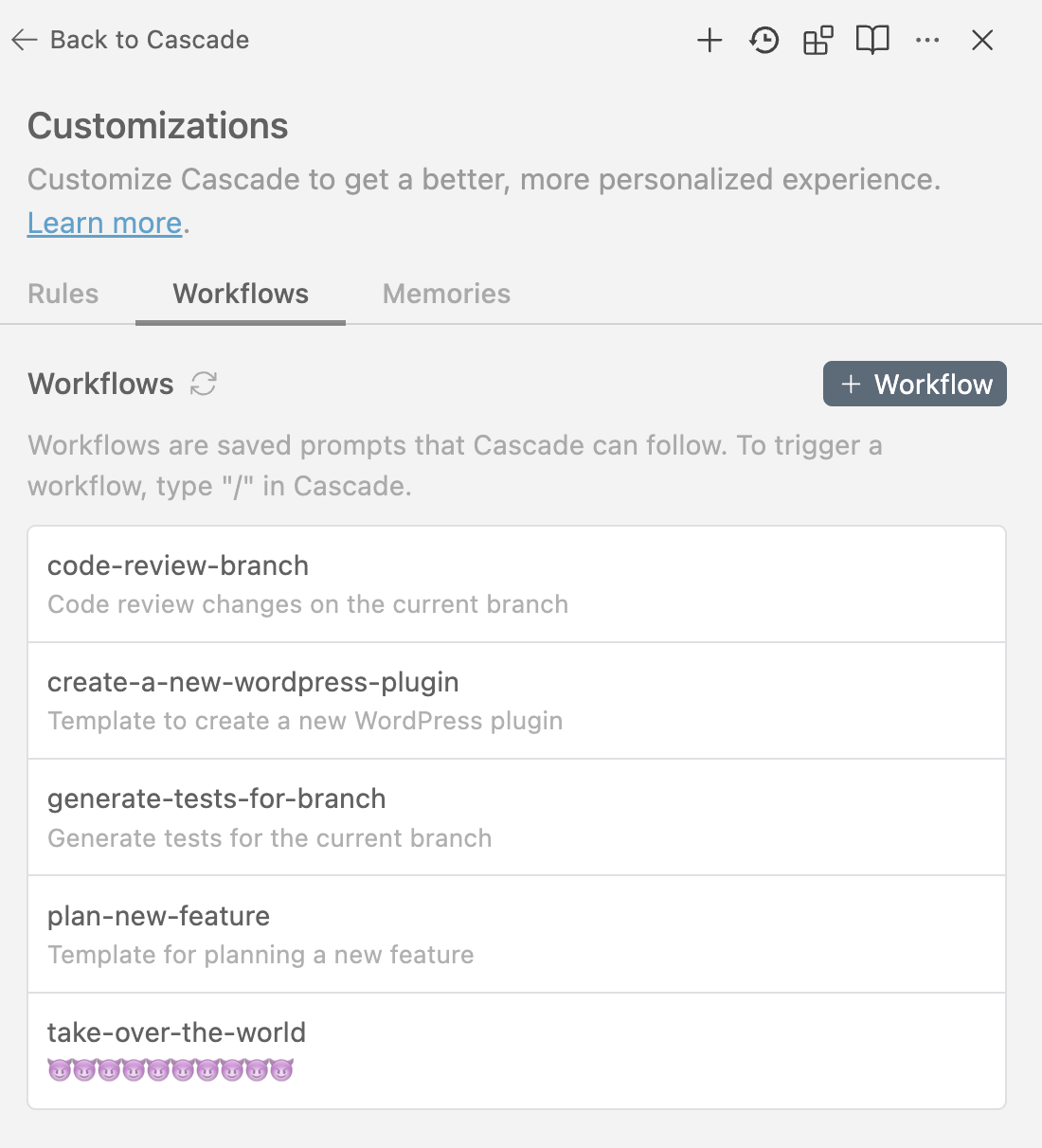
-
Memory
- Built in memory
-
Documentation
- llms.txt
Knowledge / Docs
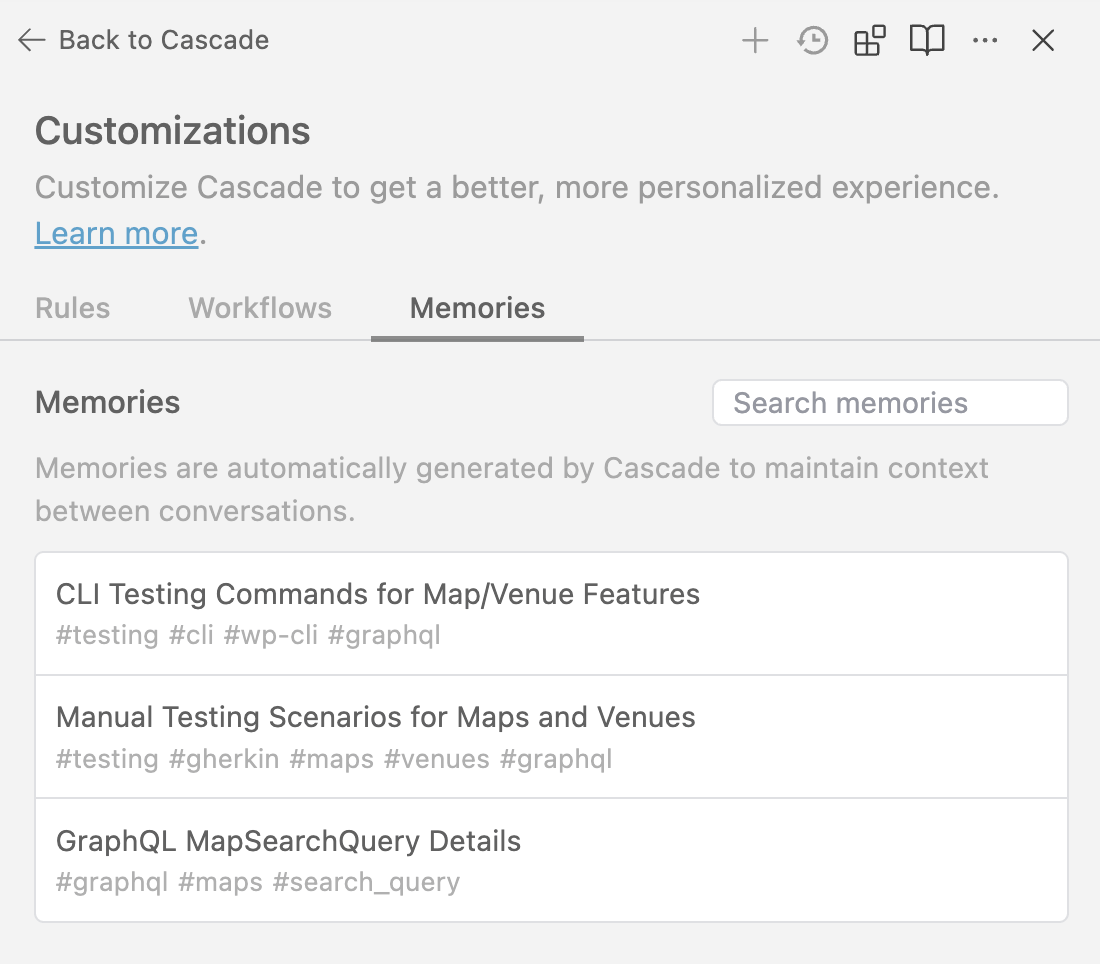
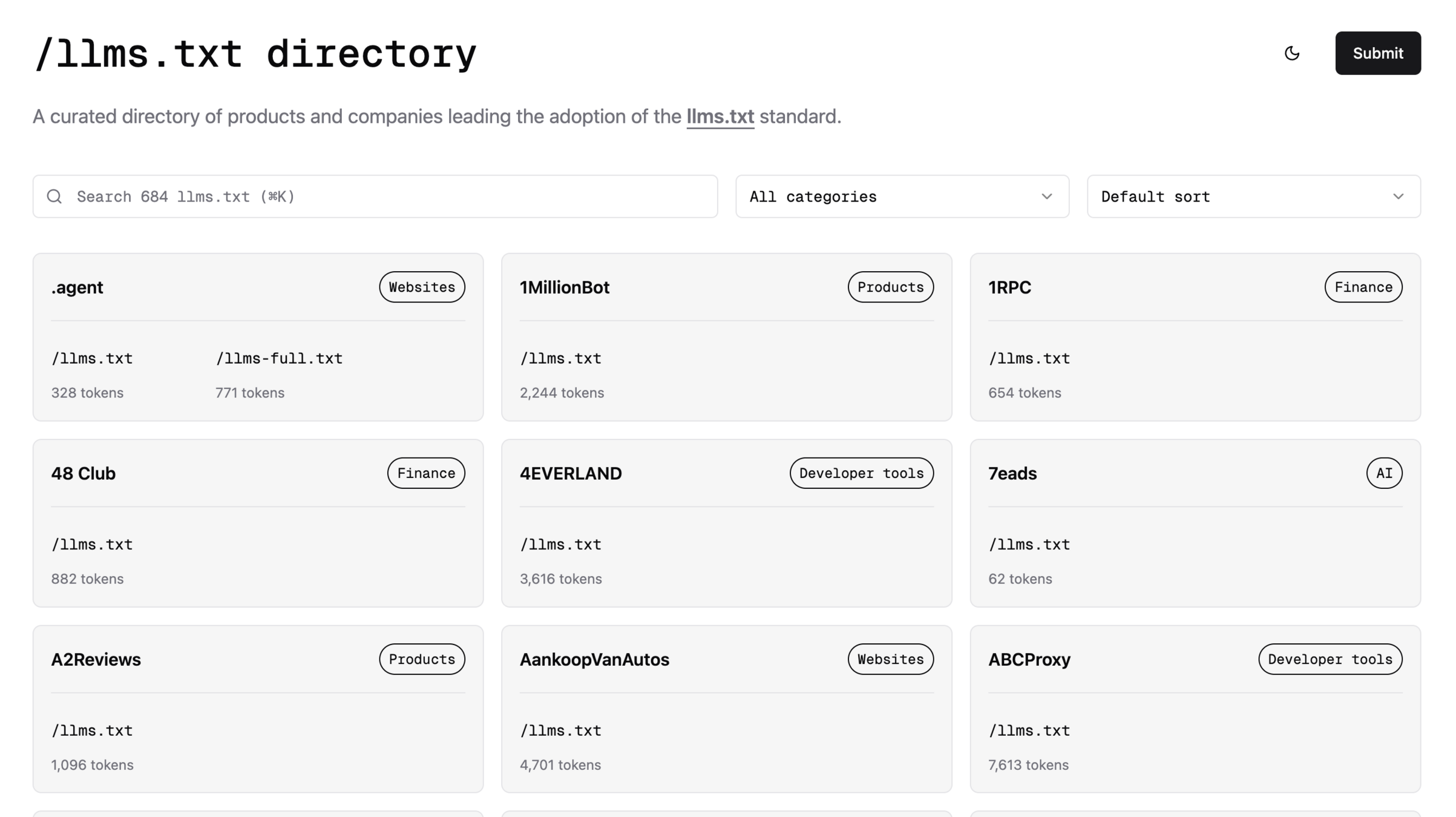
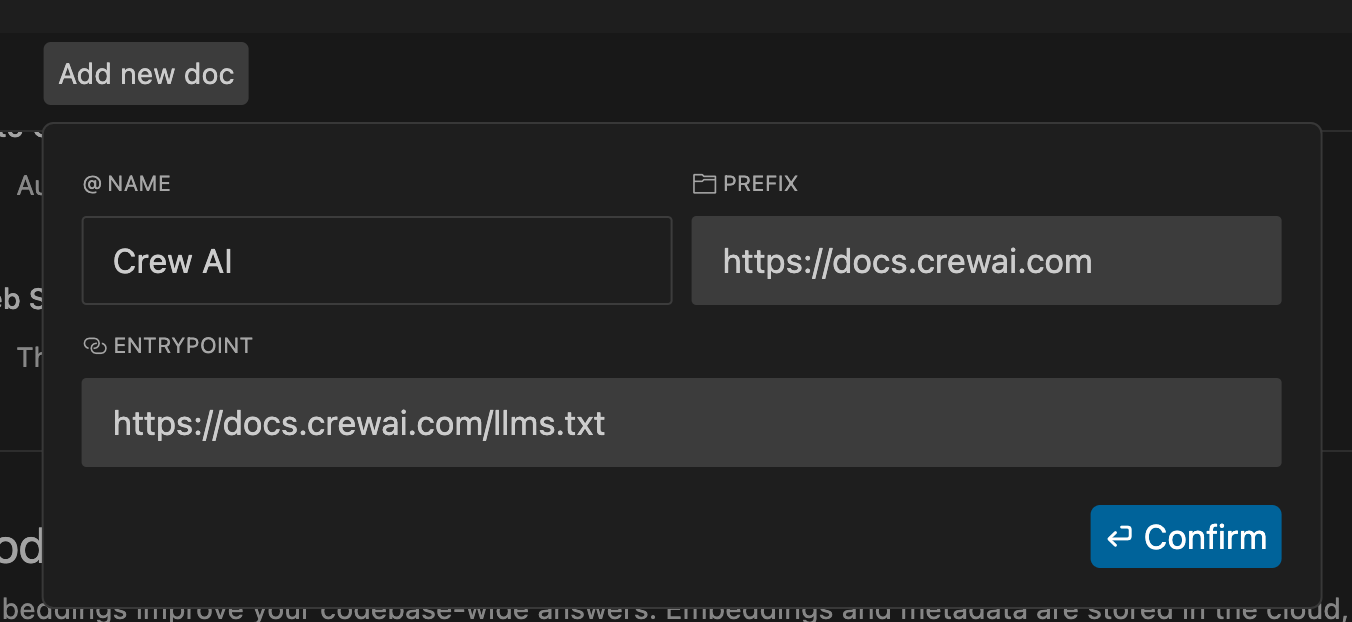
Prompt Engineering
How to talk to AI
Prompt engineering is the art and science of designing and optimizing prompts to guide AI models, particularly LLMs, towards generating the desired responses.
Prompt Engineering
Zero-shot:
Parse a customer's pizza order into valid JSON:
"I want a small pizza with cheese, tomato sauce, and pepperoni."
1. Zero-shot, multi-shot
Output 1:
{
"size": "small",
"type": "pizza",
"ingredients": [
"cheese",
"tomato sauce",
"pepperoni"
]
}
Zero-shot:
Parse a customer's pizza order into valid JSON:
"I want a small pizza with cheese, tomato sauce, and pepperoni."
1. Zero-shot, multi-shot
Output 2:
{
"size": "small",
"sauce": "tomato sauce",
"toppings": ["cheese", "pepperoni"]
}
Multi-shot:
Parse a customer's pizza order into valid JSON:
"I want a small pizza with cheese, tomato sauce, and pepperoni."
Example
{
"size": "small",
"sauce": "{SAUCE}",
"toppings": ["TOPPING 1", "TOPPING 2", ..]
}
1. Zero-shot, multi-shot
You are an experienced software engineer focused on security and performance. You're fluent in PHP, JS, WordPress, and React. You're patient, thorough, and you ask questions to clarify any points when needed.
The requirement is:
2. Role prompting
You are an experienced software engineer focused on security and performance. You're fluent in PHP, JS, WordPress, and React. You're patient, thorough, and you ask questions to clarify any points when needed.
You are working on a commercial WordPress plugin for syncing data across site in a multi-site installation.
The requirement is:
3. Contextual prompting
You are an experienced software engineer focused on security and performance. You're fluent in PHP, JS, WordPress, and React. You're patient, thorough, and you ask questions to clarify any points when needed.
You are working on a commercial WordPress plugin for syncing data across site in a multi-site installation.
The requirement is: X
Let's think step by step.
4. Chain of Thought (CoT)
You are an experienced software engineer focused on security and performance. You're fluent in PHP, JS, WordPress, and React. You're patient, thorough, and you ask questions to clarify any points when needed.
You are working on a commercial WordPress plugin for syncing data across site in a multi-site installation.
The requirement is: X
Let's think step by step. Break down the problem into smaller points:
Point 1:
Point 2:
Analysis: a) Maintainability: b) Security c) Performance
Solutions: a) Solution 1: (pros/cons), Solution 2: (pros/cons)
4.CoT + single-shot

Three experienced software engineers focused on security and performance. They're fluent in PHP, JS, WordPress, and React. They're patient, thorough, and they ask questions to clarify any points when needed. They discuss the following requirement, trying to solve it step by step, and make sure the result is correct.
The requirement is: X
5. Tree of Thought (ToT)



Three experienced software engineers focused on security and performance. They're fluent in PHP, JS, WordPress, and React. They're patient, thorough, and they ask questions to clarify any points when needed. They discuss the following requirement with a panel discussion, trying to solve it step by step, and make sure the result is correct and avoid penalty.
The requirement is: X
6. Panel GPT (ToT)

How do I use any of that?
- Develop your persona(s), add them to a global rule in your editor.
- Persist your working steps in global rules too, (step-by-step thinking/CoT, one or few-shot examples of AI tackling your requests)
- Make a workflow / custom rule for techniques like ToT for analysis queries.
- Keep a good project documentation for contextual awareness.
- Implement validation loops, so the model would test their work and iterate until the desired outcome is reached (tests, cli commands).
Tips
Resources
Tips
Okay, what's next?
- Experiment: Try, track, train, ongoing process.
- MDCs: Teach your AI how to work.
- MCPs: Level-up your AI with tools (reasoning, APIs, etc).
- Context: AI is useless without context (project, standards, task).
- PETs: Learn AI Language, bring its best.
- Plan: ALWAYS plan before execution, take the time.
- Prompts: Keep inventory of prompts (code review, planning, test).
- Test: Write tests, they're cheaper now!
- Review: ALWAYS review the code.
Final tips
- ☑️ Choose an editor and model
- ☑️ Setup MCPs (search, reasoning, services)
- ☑️ Setup your rules and prompt (standards/code styles, workflows)
- ☑️ Document your project (history, codebase, roadmap, etc)
- ☑️ Keep inventory of prompts (planning, code review, testing, etc)
- ☑️ Learn and experiment with PETs
- ☑️ Keep up to date (newsletters)
Checklist
Thank You!
Questions?

Shadi Sharaf


/shadyvb
